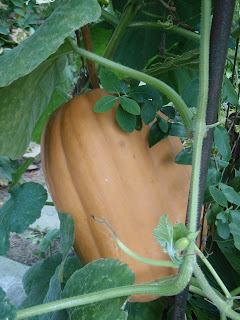 |
| Silence, Peter Mathios, Oregon, 2011 |
is bird song
in the quiet
but first you must have
the quiet.
in the quiet
but first you must have
the quiet.
(Wendell
Berry)
Our culture runs from silence almost as much as we run from sorrow. We speed from work to meeting to major event while our kids ricochet from
school to the organized activities that define contemporary childhood. In those
few minutes when we could enjoy real stillness, we turn on iPods, radio, TV. We
don’t hear birdsong. We don’t hear quiet. We don’t even hear each other.
Looking at verses about quiet in the Old Testament, I’m
struck by how many old Hebrew words there are for the absence of speech. In
English we have silence, stillness, quiet – with not much difference between
the three. In Hebrew, I was stunned to discover more than thirty words that are
translated into our three words. In Hebrew there are words that say “sitting
still,” “lying still,” “standing still,” words for tranquil stillness, uneasy
stillness, incapacitated stillness, enforced stillness.
Apparently, the Hebrews were deeply familiar with the
various aspects of silence, so much so that the psalmists, using different
words to say almost the same thing, expressed insights that are lost in our
flattened translations.
In Psalm 28:1, the writer says “28:1 To You, O Lord, I call;
My rock, do not be deaf to me, For if You are silent to me, I will become like
those who go down to the pit.” We can
only get a hint of it in English: You Lord, strong silent stone, don’t be silent,
speechless to me, for if you are silent, inactively still, I’ll become silent,
incapable of speech, like those who are still in death.
In Psalm 81:1, the English translation says “O God, do not
remain quiet; Do not be silent and, O God, do not be still.” It sounds like a
triple repetition: “Please, speak to me.” But each of the original words has a
different nuance, suggesting a different kind of quiet: Withholding action? Withholding
speech? Peacefully at rest?
 |
| Silence, Johann Heinrich Füssli, |
Imagine having words for each of those.
One word I came across intrigued me: charash. Here are the
various ways its translated, according to Studylight, a great website that
feeds my interest in ancient, hard-to-translate words: cease, cease speaking,
completely silent, deaf, devises, engraved, indeed says nothing, keep silence,
kept silence, plotting, plow, plowed, plowman, quiet, remain silent,
said nothing, says nothing, silent, still.
Apparently none of those words quite get there: there’s a
word we don’t know, hiding between those translations. Something to do with
plowing, with preparing, with “devising.”
There’s a moment, in planning for something, when you’ve
done all you can, and then all you can do is wait, with the next steps running
through your mind, but the time for action still out ahead. Charash seems to
point toward that moment.
There’s a time in a pregnancy, when preparations are done,
the baby is due, and all you can do is wait. It’s out of your hands. Or was –
before modern medicine found ways to intervene. Charash carries something of
that motionless expectation.
 |
| The Delivery of Israel, Francis Danby, 1825, London |
In Psalm 46, the psalmist describes God’s activity in the world, his power over nature, over kingdoms and nations. And God, speaking through the psalmist, says “Be still and know that I am God.” That “be still” is “charash.” Wait expectantly. Watch and listen.
Stillness can go in lots of directions. It can be lonely, discouraging, lazy, defeated. It can be peaceful, sleepy, companionable, joyful.
This Lenten stillness I find myself called to is something
different. It’s an expectant stillness, the stillness of early spring, waiting
for the daffodils to burst open, waiting for the buds to spring out into green.
It’s a generative stillness, productive in mysterious ways,
as I set my own agendas aside and see where God’s power is moving.
It’s an attentive stillness: eyes open, ears alert.
As I wrote last week, there are many things I grieve over, many
things I’d like to see changed. I feel some days like the Israelites,
confronting the Red Sea : Why did I even start
on this journey? Where will it lead? Is hope even possible?
Yet God calls me to stillness: charash. Wait and see. The
Lord will fight for you while you keep silence. Be still and know that I am
God. He’s the one with the plow, the plan, the power. Charash.
Have the beehives
of my dreams
of my dreams
stopped working,
the waterwheel
the waterwheel
of the mind run dry,
scoops turning empty,
only shadow inside?
No, my heart is not asleep.
It is awake, wide awake.
Not asleep, not dreaming—
its eyes are opened wide
watching distant signals, listening
on the rim of vast silence.
(Antonio Machado,
translated by Alan S. Trueblood)
translated by Alan S. Trueblood)
For more from this Lenten series: Looking toward Lent, Lenten Sorrow: Lament and Nacham.
As always, your thoughts and comments are
welcome. Click on the _comments
link below to open the comment box.















